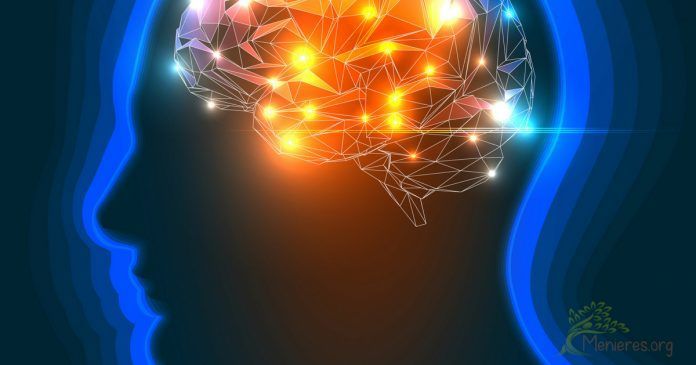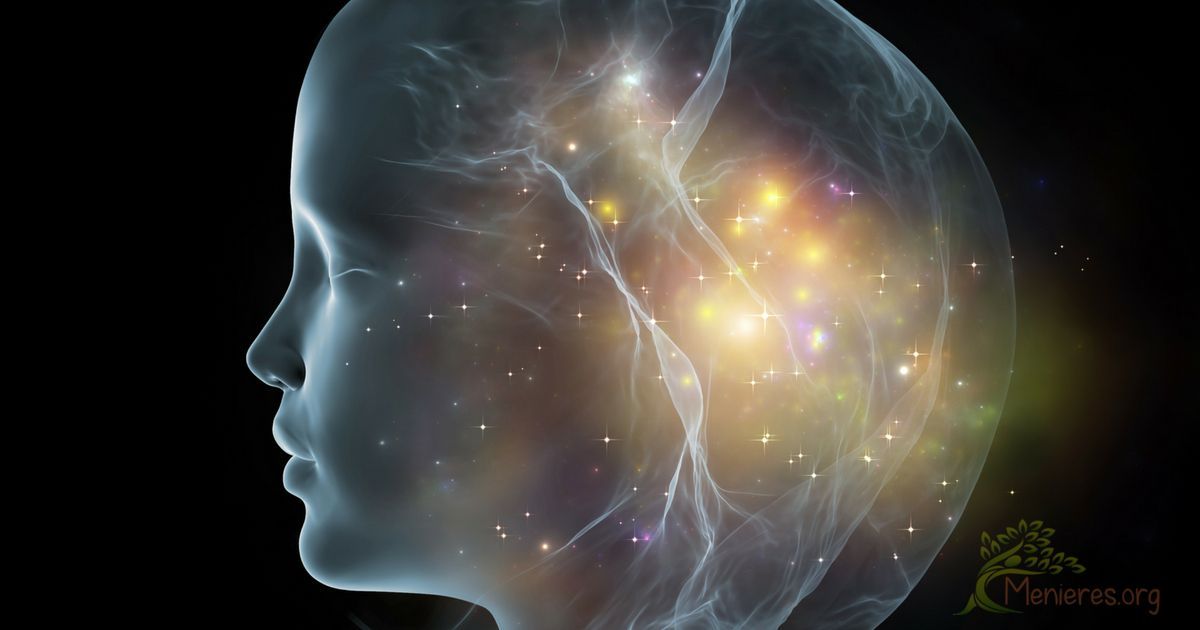
Have you ever stood up too fast and felt like everything around you was spinning? That is like a vertigo attack. Along with the dizziness, many people experience double vision, unsteadiness, nausea, ringing in their ears, and some hearing loss. Some people find that vertigo gets worse when they walk or move their head. Sometimes, these symptoms are so severe that you must sit down in a safe location.
A bout of vertigo might be brief, but it depends on what’s causing the problem. You may feel dizzy for only a few minutes. In other situations, vertigo can last hours. If you’ve had trouble with vertigo-like symptoms, it’s important to get them checked as they may have many causes.
Vertigo Is Not A Disease

While vertigo can be very unsettling, it is not a disease. Vertigo is a symptom of something else. Some underlying causes of vertigo are mild and treatable. Others are more serious. Sometimes, like those with a diagnosis of Meniere’s Disease, vertigo episodes can go on for years. So, while there are over-the-counter medications that may make you feel better during or after a vertigo attack, that alone won’t fix things. It’s important to get to the root of the matter.
Dizziness Is Common
You may not know this, but complaints of dizziness are one of the top reasons people visit their primary physician. Sometimes it’s tempting to put that off thinking it’s nothing. However, there are warning signs that may happen with your vertigo that means you need to seek care as soon as possible. These include:
- Vomiting that doesn’t ease up.
- Headaches coming on quickly.
- Slurred speech.
- Blurry vision.
- Stiff, painful neck.
- Wavering when you walk.
- Chest pain.
- Numbness
Any of these (or several) along with your vertigo can mean a serious underlying cause, like a stroke.
Causes of Dizziness and Vertigo

You may go for many years without ever having experienced ongoing vertigo. So, when it occurs you may wonder why. There are several potential causes for your condition.
Anxiety
People with anxiety disorders have a heightened “fight or flee” instinct. When they have a panic attack or intense fear, they can feel lightheaded. This is not vertigo, but it is a cause of dizzy spells.
Bleeding
When you lose too much blood it can cause you to feel faint and lose consciousness. While we usually know of external bleeding, internal hemorrhages sometimes go unchecked because a person just feels pain and doesn’t realize there’s a problem. Over time a slow internal bleed can manifest with weakness, low blood pressure and other symptoms similar to that of shock.
Brain Disorders
Conditions like dementia, stroke or tumors often have vertigo symptoms attached. This is why your doctor may request an MRI or CT scan (trying to rule out this possibility).
Circulation Problems
When your blood isn’t circulating properly it can cause you to feel dizzy and out of balance. There are two common reasons for this. Your blood pressure drops making you feel faint or you may have poor blood circulation.
Dehydration
Maintaining enough water in your system is vital for your health. When you become dehydrated, often due to overheating, it creates dizziness. While each person is different, experts recommend you have eight 8-ounce glasses of water daily, and more if you are in a hot environment.
Diet
A lot of the causes for vertigo are things we cannot control. However, we can reduce items in our diets that make vertigo worse. Decreasing your salt, caffeine, and alcohol intake are all suggestions, particularly if you have Meniere’s Disease vertigo.
Hyperventilation
When a person breathes too fast, it creates an imbalance between oxygen and carbon dioxide. Here, you exhale more than you inhale. It reduces the blood flow to your brain which results in dizziness and a tingling sensation.
Injuries
Certain head injuries like a concussion or whiplash evidence in vertigo symptoms. With whiplash where the head moves forward and backward forcefully, people report dizziness, vision problems, ringing in the ears (tinnitus) and issues with focus and sleep.
Inner Ear Problems
Your inner ear is one of your balance centers. It helps your brain interpret back-and-forth motions and gravity. When you have a problem with your inner ear, your brain gets incorrect information from those nerves, while getting something different from your visual input. So, what is happening in there?
BPPV
Well, you may have BPPV, set off by rapid head movements or a head injury, creating a false sense of spinning. BBPV is Benign paroxysmal positional vertigo. Such attacks are brief but intense. It is one of the most common types of vertigo people experience.
Chronic Migraines
People with frequent migraines sometimes have accompanying vertigo. They may also experience vertigo in between headaches. These episodes can go on for hours during which the person may experience sensitivity to noise and bright lights.
Meniere’s Disease: Meniere’s disease occurs when the fluid in the inner ear builds up. People with Meniere’s have other accompanying symptoms like ringing in one ear, stuffiness in that ear, and some hearing loss that worsens with time. A Meniere’s vertigo attack lasts at least 20 minutes but can extend over a whole day.
Hypoglycemia or Anemia
Hypoglycemia, or low blood sugar and Anemia (low iron levels) both may cause dizziness. Low blood sugar can also cause increased anxiety, while low iron levels leave people feeling very weak and weary.
Medications
A lot of medications have dizziness as a side effect. Common culprits include antidepressants, tranquilizers, pain medication, and anti-seizure drugs. Blood pressure medication can also contribute to feeling faint.
Stress
Stress seems to be on the list as a contributor to every medical condition. Vertigo is no exception. Researchers believe stress agitates symptoms. A good example is people with Meniere’s disease. Their stress about the unpredictable nature of this condition sometimes exasperates an attack or increases the frequency.
Travel
Long car rides, sailing and flying all may bring on a sense of dizziness. When you first step out of the vehicle you feel you’re still moving. That’s because long hours of travel can influence your inner ear. Thankfully, this vertigo subsides quickly.
Viral Infection
The second reason for your dizziness may be an infection. The vestibular nerve can catch a virus. That causes glitches in the workings of your inner ear resulting in vertigo. Once you receive treatment, this vertigo stops.
Living with Vertigo
Not everyone who experiences vertigo will have to deal with it for extended periods of time. But some, like those with Meniere’s Disease, often have years (or a lifetime) struggling with issues created by vertigo. Taking a walk alone, driving, or using a ladder – all these things can become a safety issue.
Get to know your condition and ask your doctor what to expect. Your physician may recommend medications. Water pills help reduce water retention. This is helpful for Meniere’s patients. Antihistamines give people relief from dizziness. If you get sick from vertigo, look to motion sickness medicine. Your primary may also suggest physical therapy options for improving your sense of balance.
On the home front, you can try herbs that alleviate vertigo symptoms. These are ginger root (especially for nausea), ginkgo biloba, cayenne (great for circulation) and turmeric. On the homeopathic level you can try nux vomica or Cocculus indicus for vertigo.
Summing It All Up: Planning and Education

People with ongoing issues with vertigo should create an action plan. This plan not only outlines what people should do when you have an episode, but other guidelines you want to follow daily. This personalizes your care plan. Make several copies and keep them handy.
In terms of education, you need to give your employer, family, and friends insights into how your condition affects you. You may have to request workplace changes (like having a desk where there are fewer fluorescent lights or noise). At family outings, you might have to bow out of many photos to avoid the flashes. This is a learning process for everyone around you too. They can’t “fix” something if they don’t know what’s wrong. Remember that as you share your situation with others, you also raise awareness about vertigo symptoms and how they impact daily life.
Don’t forget personal care. It’s easy to overlook things like getting enough sleep and reaching out for support, but those little things add up. Self-care is very empowering with conditions like vertigo where you sometimes feel like there’s nothing you can do.
Post Script: The vast majority of dizzy spells or vertigo episodes have harmless triggers. When that’s the case, the issue goes away. A good example would be a cold with a serious sinus infection. That’s easily treated by medication. Once that clears up, vertigo ends.



